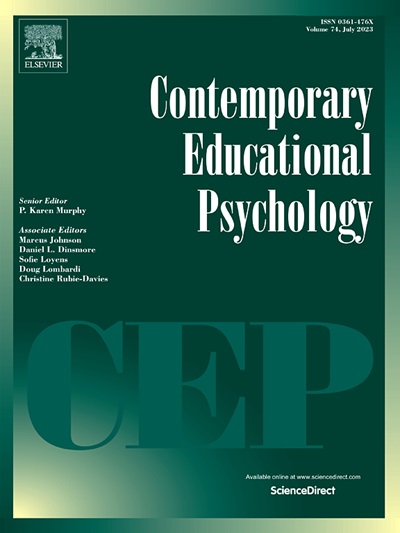Is studying latin associated with (Non–)linguistic cognitive transfer? A large-scale cross-sectional study
IF 3.9
1区 心理学
Q1 PSYCHOLOGY, EDUCATIONAL
引用次数: 0
Abstract
Despite ongoing discussions regarding the relevance of Latin in modern education, this language still holds a prominent role in European secondary school curricula. While studying Latin is commonly believed to yield cognitive and linguistic benefits, this argument primarily relies on dated research that often uses methodologies that do not allow to make strong claims justifying the widespread use in education. It also remains unclear to which extent the benefits associated with Latin studies are due to Latin students’ superior pre-existing abilities (preselectivity), or to cognitive transfer effects elicited by studying the language. To delve further into the presence and nature of a potential cognitive advantage of Latin, we gathered data from N = 1,731 secondary school students across three grades. We explored whether a ‘Latin advantage’ exists, and if so, for which subjects, when this advantage arises and how it evolves throughout secondary education. We found that first-year Latin students exhibited higher intelligence scores, superior native language competencies and higher meta-linguistic awareness compared to non-Latin peers, which is in line with the preselectivity account. This performance difference was larger in the second year, but smaller in the last year of secondary education, thereby challenging the notion of cognitive transfer effects attributed to Latin studies. Only one variable, vocabulary, demonstrated a trend in line with cognitive transfer benefits. Longitudinal work is needed to further investigate whether Latin studies result in persisting benefits or whether the ‘Latin advantage’ is merely a reflection of preselection biases.
学习拉丁语是否与(非)语言认知迁移有关?大规模横断面研究
尽管有关拉丁语在现代教育中的相关性的讨论仍在继续,但这种语言在欧洲中学课程中仍占有重要地位。虽然人们普遍认为学习拉丁语对认知和语言有益,但这一论点主要依赖于过时的研究,而这些研究通常使用的方法并不能有力地证明拉丁语在教育中的广泛使用是合理的。此外,拉丁语学习的益处在多大程度上归因于拉丁语学生的超强先天能力(预选能力),还是归因于学习拉丁语所产生的认知迁移效应,目前仍不清楚。为了进一步探究拉丁语潜在认知优势的存在和性质,我们收集了三个年级共 1731 名中学生的数据。我们探究了 "拉丁语优势 "是否存在,如果存在,在哪些科目上存在,何时出现,以及在整个中学教育中如何演变。我们发现,与非拉丁语学生相比,一年级拉丁语学生表现出更高的智力分数、更强的母语能力和更高的元语言意识,这与预选说相符。这种成绩差异在第二年较大,但在中学教育的最后一年较小,从而对拉丁语学习的认知迁移效应概念提出了质疑。只有一个变量,即词汇量,显示出与认知迁移效益一致的趋势。要进一步研究拉丁语学习是否会带来持续的益处,或者 "拉丁语优势 "是否只是预选偏差的反映,还需要开展纵向研究。
本文章由计算机程序翻译,如有差异,请以英文原文为准。
求助全文
约1分钟内获得全文
求助全文
来源期刊

Contemporary Educational Psychology
PSYCHOLOGY, EDUCATIONAL-
CiteScore
16.50
自引率
3.90%
发文量
74
期刊介绍:
Contemporary Educational Psychology is a scholarly journal that publishes empirical research from various parts of the world. The research aims to substantially advance, extend, or re-envision the ongoing discourse in educational psychology research and practice. To be considered for publication, manuscripts must be well-grounded in a comprehensive theoretical and empirical framework. This framework should raise critical and timely questions that educational psychology currently faces. Additionally, the questions asked should be closely related to the chosen methodological approach, and the authors should provide actionable implications for education research and practice. The journal seeks to publish manuscripts that offer cutting-edge theoretical and methodological perspectives on critical and timely education questions.
The journal is abstracted and indexed in various databases, including Contents Pages in Education, Australian Educational Index, Current Contents, EBSCOhost, Education Index, ERA, PsycINFO, Sociology of Education Abstracts, PubMed/Medline, BIOSIS Previews, and others.
 求助内容:
求助内容: 应助结果提醒方式:
应助结果提醒方式:


